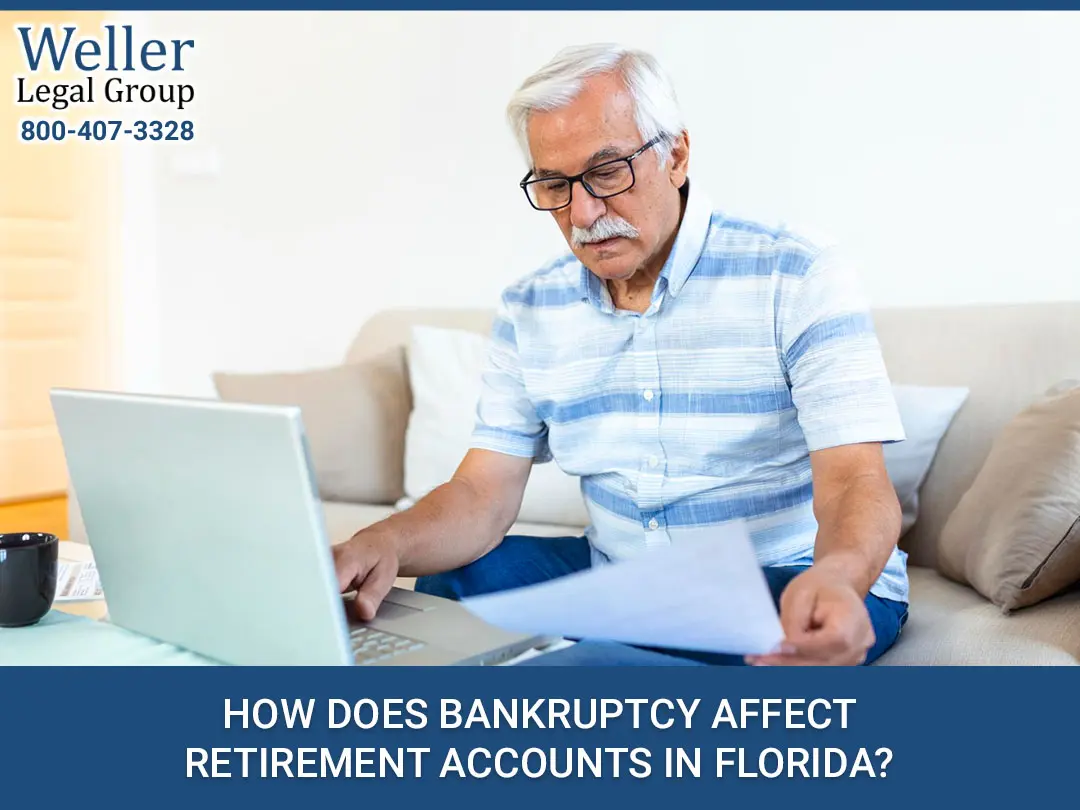
Understanding Retirement Accounts in Bankruptcy
For many individuals in Clearwater facing financial hardship, one of the most common concerns is how bankruptcy will affect retirement savings. When people consider filing for bankruptcy with the help of a bankruptcy attorney or lawyer, they often worry about losing the funds they have built up over a lifetime of work. In Florida, retirement accounts receive significant protections under both federal and state law. However, the application of these protections depends on the type of account and the type of bankruptcy filed.
Florida law often provides more generous exemptions than federal law; however, individuals must meet specific residency and ownership requirements to utilize these exemptions. Understanding how these protections work helps filers preserve their retirement funds while addressing their financial obligations through the bankruptcy process.
Federal Protections for Retirement Accounts
Most retirement accounts are safe from creditors during bankruptcy thanks to the Employee Retirement Income Security Act (ERISA). These are accounts that employers set up for their employees, like 401(k) and pension plans. These funds are not part of the bankruptcy estate under federal law, so they can’t be used to pay off debts. This protection works regardless of the account balance, making it a very secure option for retirement savings.
IRAs are also safe, but only to a certain extent. There is a limit on the amount of money you can contribute to a traditional or Roth IRA, set by the federal government. This limit is adjusted periodically to account for inflation. If your accounts exceed this limit, some of the funds may be considered part of the bankruptcy estate. However, most people’s IRA balances are well below the exemption amount. These federal protections are in place in Florida, but the state may offer broader exemptions that are even better for residents.
Florida-Specific Exemptions
Florida law has its own set of exemptions that may offer greater protections than federal laws. When you file for bankruptcy, state law typically protects most tax-qualified retirement accounts, such as 401(k) plans, IRAs, and pension plans, from creditors. Most of the time, these funds are completely exempt, meaning they can’t be used to pay off debts.
Florida also offers generous homestead exemptions and other asset protections that can impact how retirement funds are handled when someone files for bankruptcy. To be eligible for these exemptions, individuals typically must meet residency requirements, which generally require them to have lived in the state for at least 730 days before filing. To ensure you are utilizing all your protections and exemptions correctly, it is advisable to consult a lawyer.
Chapter 7 Versus Chapter 13 Considerations
The kind of bankruptcy you file can also change how your retirement accounts are handled. In Chapter 7 bankruptcy, assets that aren’t protected are sold to pay off debts. Liquidation typically has no effect on retirement accounts because federal and Florida law specifically exempt them from this effect. This lets people keep their retirement savings while paying off debts that qualify.
The primary goal of Chapter 13 bankruptcy is to create a repayment plan based on the amount of disposable income you have after paying your bills. When determining disposable income, retirement accounts are typically excluded. This means that the money in those accounts is not used to pay off debts. However, contributions to retirement accounts during a repayment plan may be reviewed to ensure they are fair and not a means to prevent creditors from receiving more money.
Withdrawals and Recent Contributions
The accounts themselves are safe, but withdrawing money from retirement accounts can be challenging. When money is withdrawn and deposited into a regular bank account, it may lose its exempt status and become part of the bankruptcy estate. We may also examine large donations made shortly before filing. Courts can investigate whether recent donations were made in good faith or were an attempt to conceal funds.
People considering bankruptcy should carefully review any recent transactions involving retirement accounts. Obtaining legal advice before filing can help you avoid unintended problems.
Planning Ahead for Protection
Taking steps ahead of time can help keep retirement savings safe during bankruptcy. Keeping money in qualified accounts, avoiding unnecessary withdrawals, and maintaining clear records of contributions can all help strengthen exemption claims. It is also a beneficial idea to gather all the paperwork for your retirement accounts, such as statements and plan descriptions, to help you file for an exemption.
Legal help is often helpful when dealing with these kinds of problems because every case is different. The way retirement accounts are handled depends on the type of bankruptcy, the setup of the accounts, and when money is deposited or withdrawn.
Bringing It All Together
Florida’s laws protect most qualified accounts, so people in Clearwater who are worried about how bankruptcy might affect their retirement savings don’t have to worry. If you plan carefully and obtain the right legal advice, your retirement funds will typically remain safe during bankruptcy. Federal and state exemptions protect many kinds of accounts. Understanding how these protections work can help maintain your financial stability in the future.
For support in navigating bankruptcy laws and protecting your retirement assets, consider reaching out to Weller Legal Group, a trusted resource for those seeking assistance from a Clearwater bankruptcy attorney or bankruptcy lawyer.
Picture Credit: Freepik


